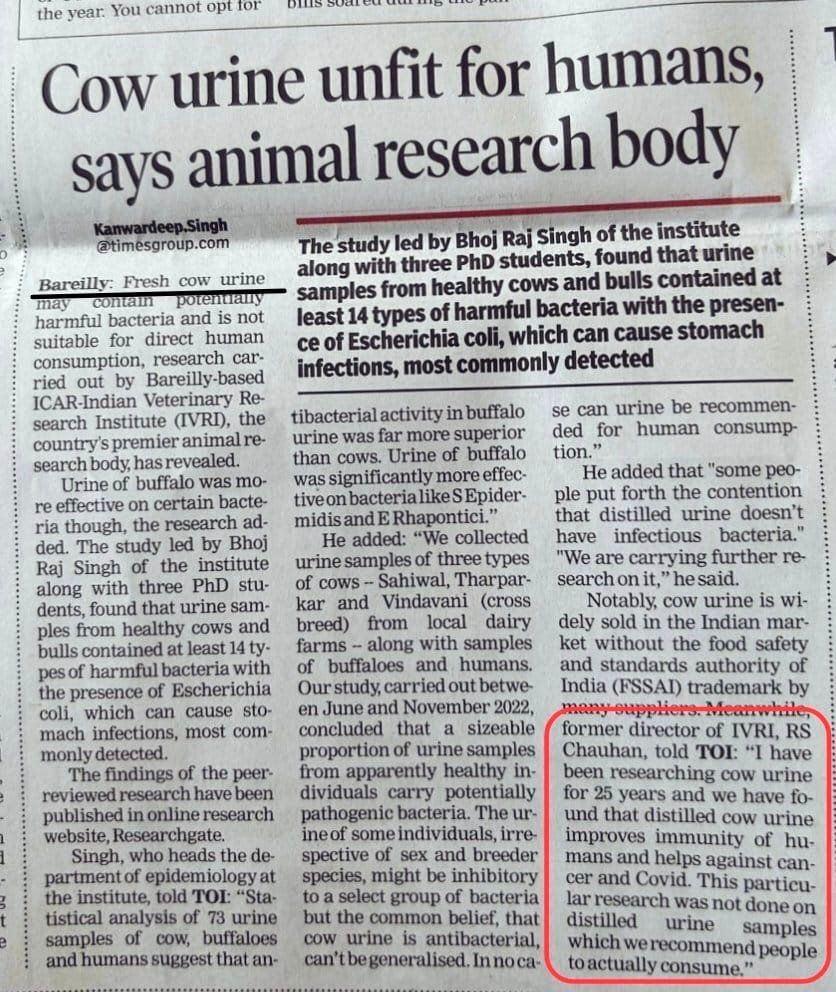Cow urine increases immunity and can cure cancer

In recent years, there has been a lot of controversy surrounding the use of cow urine in traditional Indian medicine, with some researchers claiming that it is unfit for human consumption. However, a closer look at the research shows that the issue is not as cut and dried as some would have us believe.

The first thing to note is that the research only suggests that fresh cow urine may not be fit for human consumption, as it contains bacteria. However, the same research also suggests that cow urine can be used after filtering, and that it can have a positive impact on human health.
Indeed, there is evidence to suggest that cow urine can improve immunity and help fight against diseases such as cancer and Covid-19. Despite this, the mainstream media has often chosen to ignore these positive findings and focus instead on the negative aspects of cow urine use.

This raises important questions about the role of the media in shaping public opinion. Are journalists being selective in the stories they choose to cover? Are they more interested in sensational headlines than in reporting the facts?
Whatever the case, it is clear that we need to be more discerning in our consumption of news. We cannot simply accept what we are told at face value; we need to be willing to dig deeper and examine the facts for ourselves.
In the end, the truth about cow urine may be somewhere in between the two extremes. It may not be a miracle cure-all, but it does seem to have some positive benefits when used in the right way. So rather than dismissing it out of hand, we should be open to exploring its potential and learning more about how it can be used to promote health and well-being.

- Political Leaders
- Art & Crafts
- Dance & Music
- Sanatan Dharma
- Education & Training
- Food & Drinks
- Gaming
- Health & Fitness
- Home & Gardening
- Literature & Culture
- Love
- Medicine & Ayurveda
- Motors & Vehicles
- Movies & Cinema
- Parenting
- Politics
- Science & Technology
- Shopping
- Social Media
- Spirituality
- Sports
- War & History
- Yoga & Meditation
- Travel & Tourism
- Natural Disaster
- Business & Startups
- DIY & Home Decor
- Finance
- Personal
- News
- Pet Lovers
- Wild Life & Nature
- Podcast & Audio Books
- Poetry
- Law & Order
- Moral Stories
- Jokes & Humour
- Other

